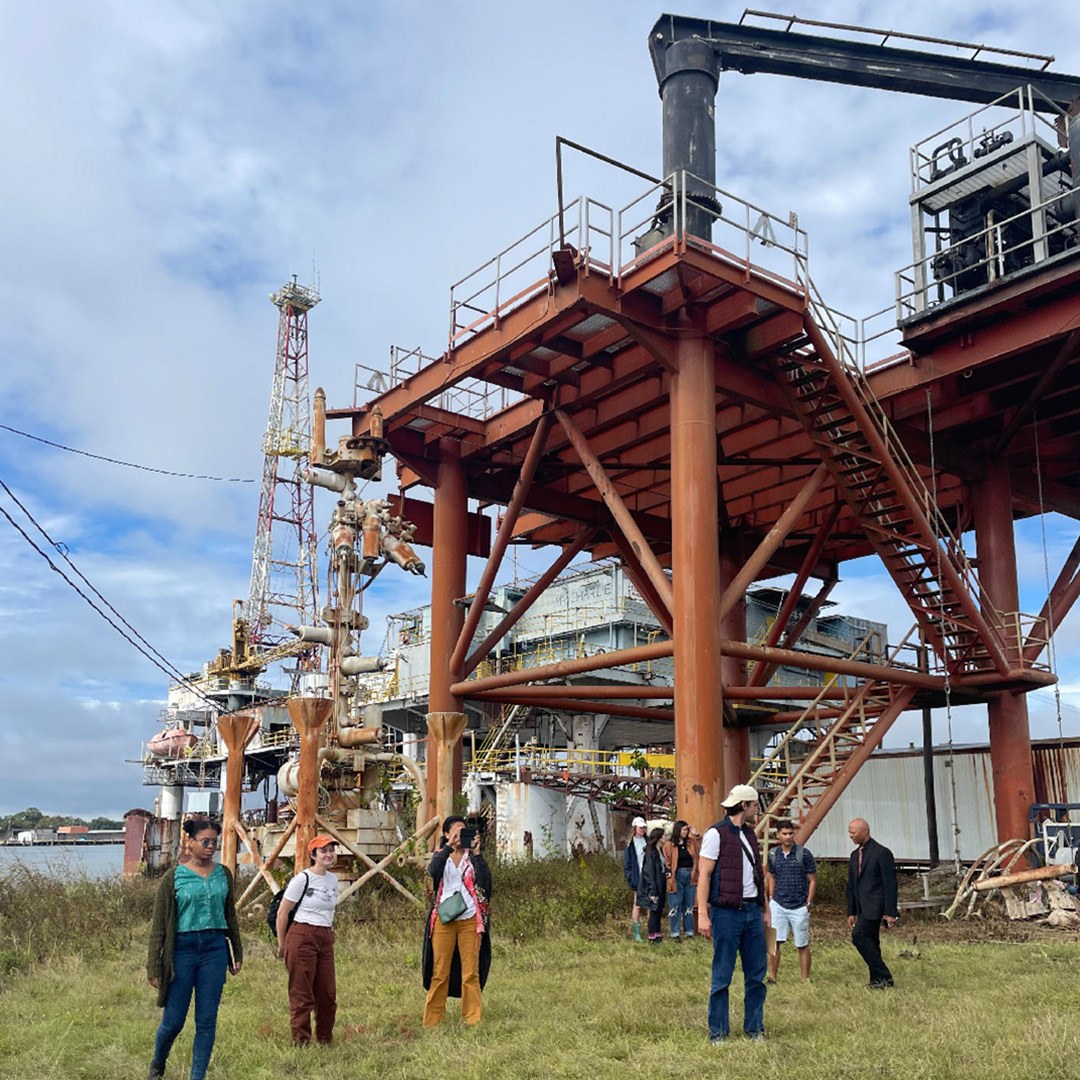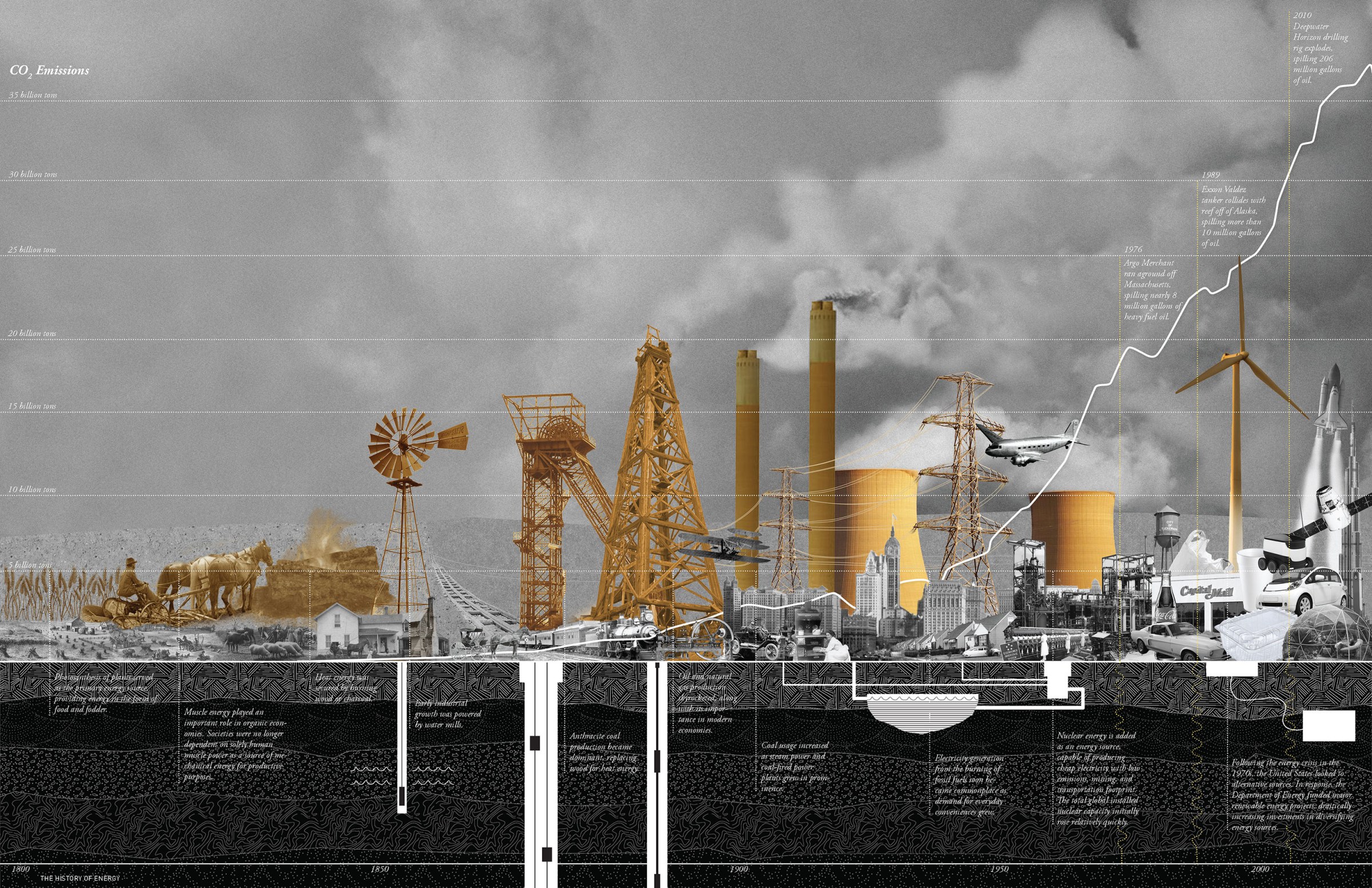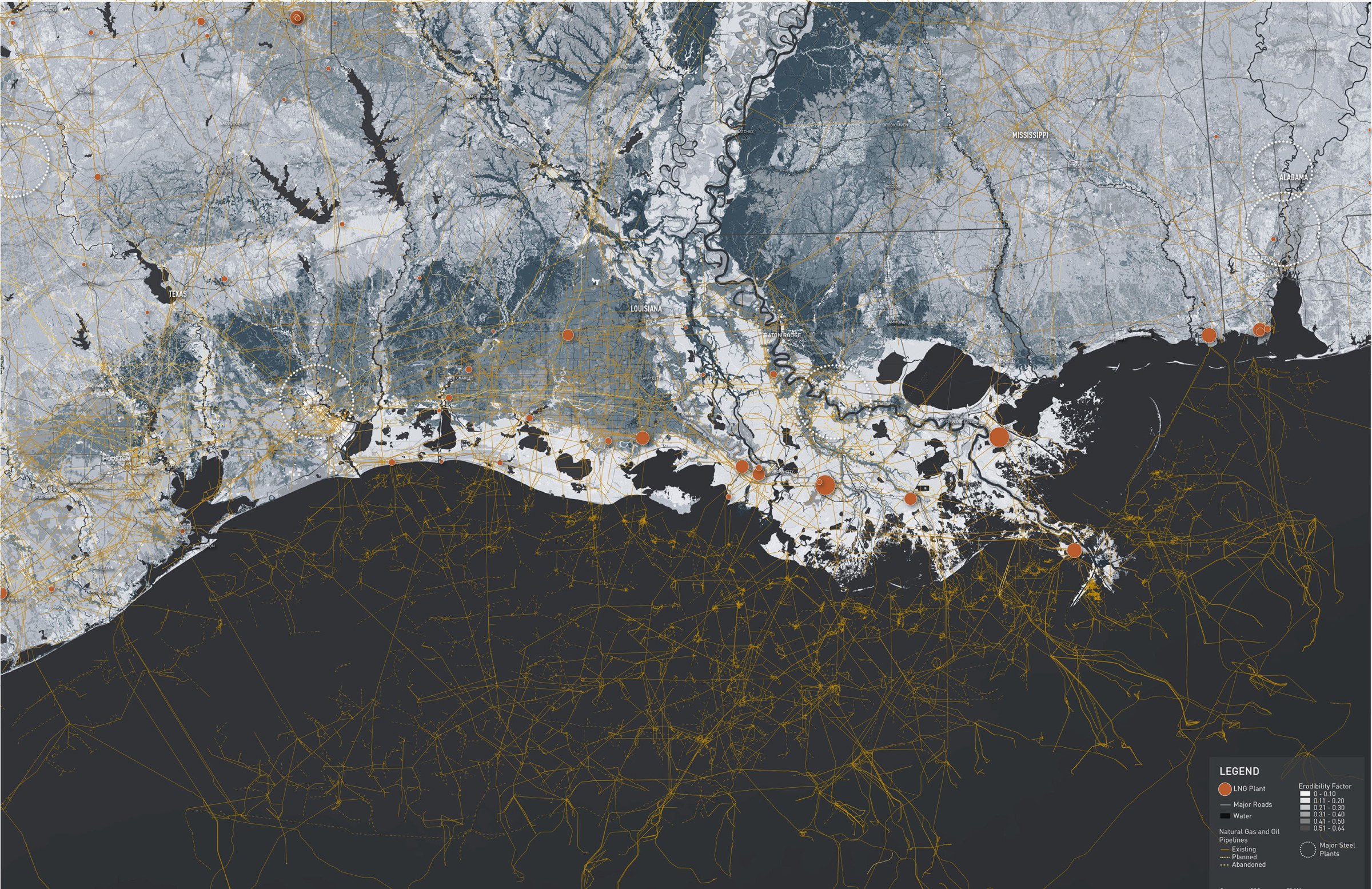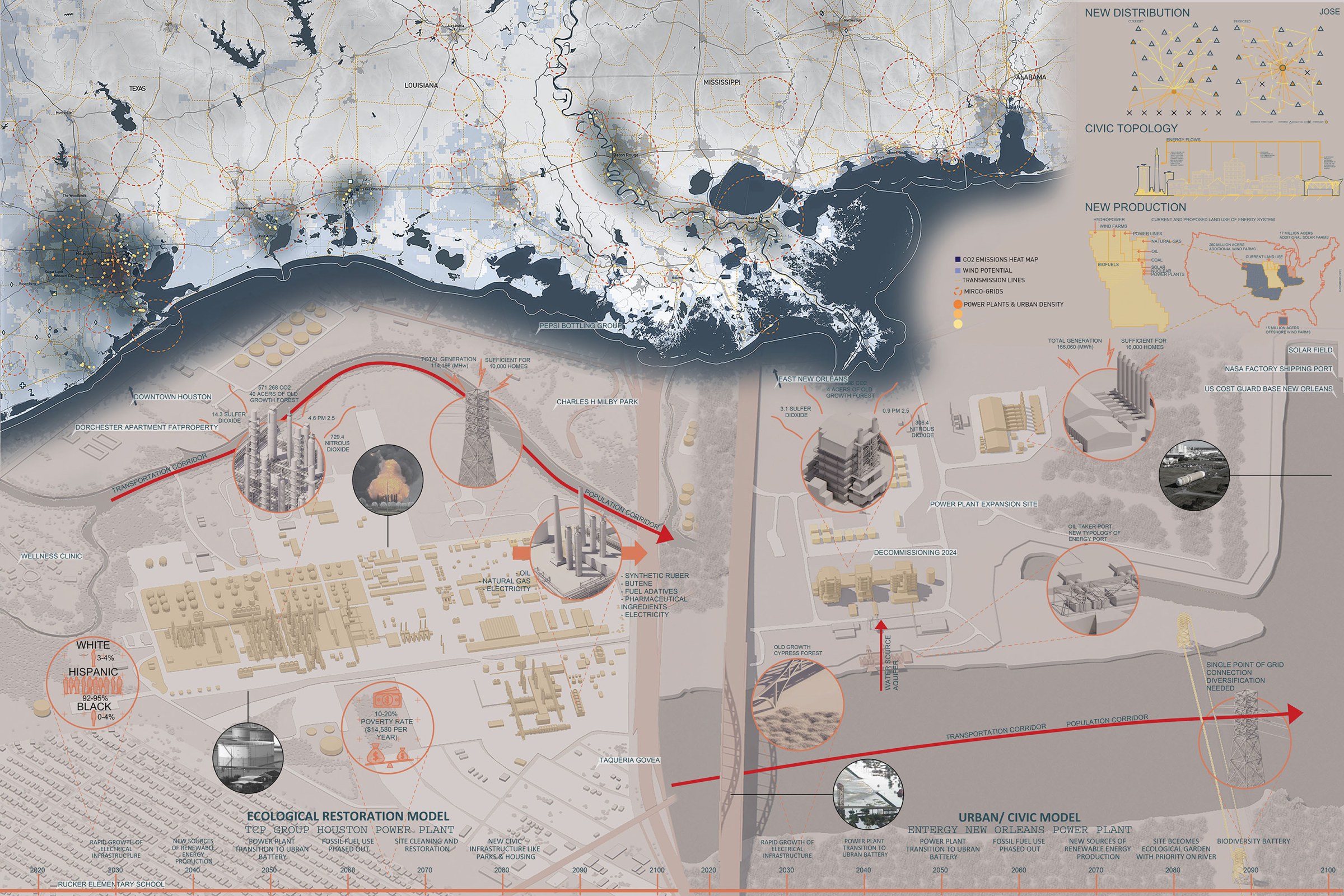Article Bio Page
Gulf Coast Climate Futures
is a design research program, funded by the National Academies of Sciences, Engineering, and Medicine's Gulf Research Program, to prepare the next generation of professionals to identify, visualize, explore, and propose interdisciplinary design-based interventions to critical challenges in the Gulf of Mexico.

These ongoing interdisciplinary design research studio courses engage the tensions between climate mitigation and climate adaptation efforts along the United States Gulf Coast, a region widely recognized as the domestic backbone of the oil and gas industry. Grounded in entangled narratives surrounding economic prosperity, ecological stewardship, and industrial-scale energy production, these studios ask students to explore nuanced, non-conventional scenarios for the future of design in this region. The pedagogical approach emphasizes multi-scalar systems analysis and collective world-building rooted in environmental justice organizing, inspiring students to think beyond technocratic solutions for a changing climate.


The studios function as an ongoing multi-year research project, with each new cohort of student researchers building on the previous year's work to produce new knowledge, generate innovative future scenarios, and expand the growing body of research about the region. Building on the regional-scale approach to analysis taken in the program's pilot years (2022-2024), the current Phase II curriculum is designed to further advance speculative design proposals at the municipal and architectural scales while also proposing implementable pilot projects with community partners in small to midsize municipalities spanning Texas to Florida.
Questions may be directed to Project Director Liz Camuti via ecamuti@tulane.edu.


Article Bio Page